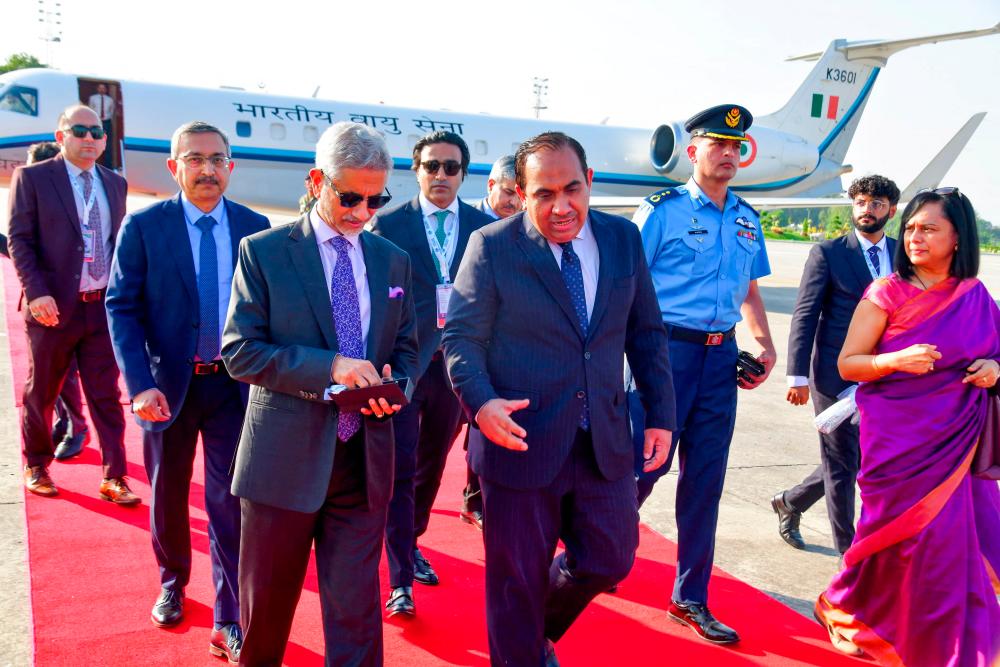ISLAMABAD: Indian Foreign Minister Subrahmanyam Jaishankar arrived in Pakistan on Tuesday in the first such visit in almost a decade for a meeting of governments of the Shanghai Cooperation Organisation, with the capital city under tight lockdown. Jaishankar was among nearly a dozen leaders participating in the gathering in Islamabad, which was culminating with the main event on Wednesday.
It has been nearly a decade since a foreign minister from Pakistan's arch-rival India visited as relations remain frosty between the two nuclear powers.
Both sides have said no bilateral meeting is planned. The meeting of the SCO, a Eurasian security and political group formed in 2001 by Russia and China, is the highest-profile event hosted by the troubled South Asian nation in years. Chinese Premier Li Qiang is already in Pakistan, while seven more prime ministers of other member and observer states, including Russia's Mikhail Mishustin, were also due to participate in person. The SCO also includes Iran, Kazakhstan, Kyrgyzstan, Tajikistan and Uzbekistan.
The Kyrgyz, Tajik and Kazakh prime ministers, Akylbek Zhaparov, Qohir Rasulzoda and Olzhas Bektenov, all arrived on Tuesday. The prime ministers of Belarus and Mongolia were also expected. While the main SCO meeting will take place on Wednesday, Pakistani Prime Minister Shehbaz Sharif was expected to host a welcome dinner on Tuesday. Pakistan's Foreign Office said Sharif would also hold bilateral meetings on the sidelines. The SCO meeting will discuss cooperation in the fields of economy and trade, it said. Observers believe the bloc seeks to counter Western influence in the region.
Pakistan's government announced a three-day public holiday in Islamabad, with schools and businesses shut and large contingents of police and paramilitary forces deployed.
The army was responsible for the security of the capital's Red Zone, the location of parliament and a diplomatic enclave and where most of the SCO meetings will take place, according to the interior ministry. The threat alert has been high ahead of the summit, especially after the killing of two Chinese engineers on Oct. 6, in an attack claimed by the separatist Baloch Liberation Army and the deaths of 21 miners in an attack on Oct. 11, for which no group claimed responsibility.









